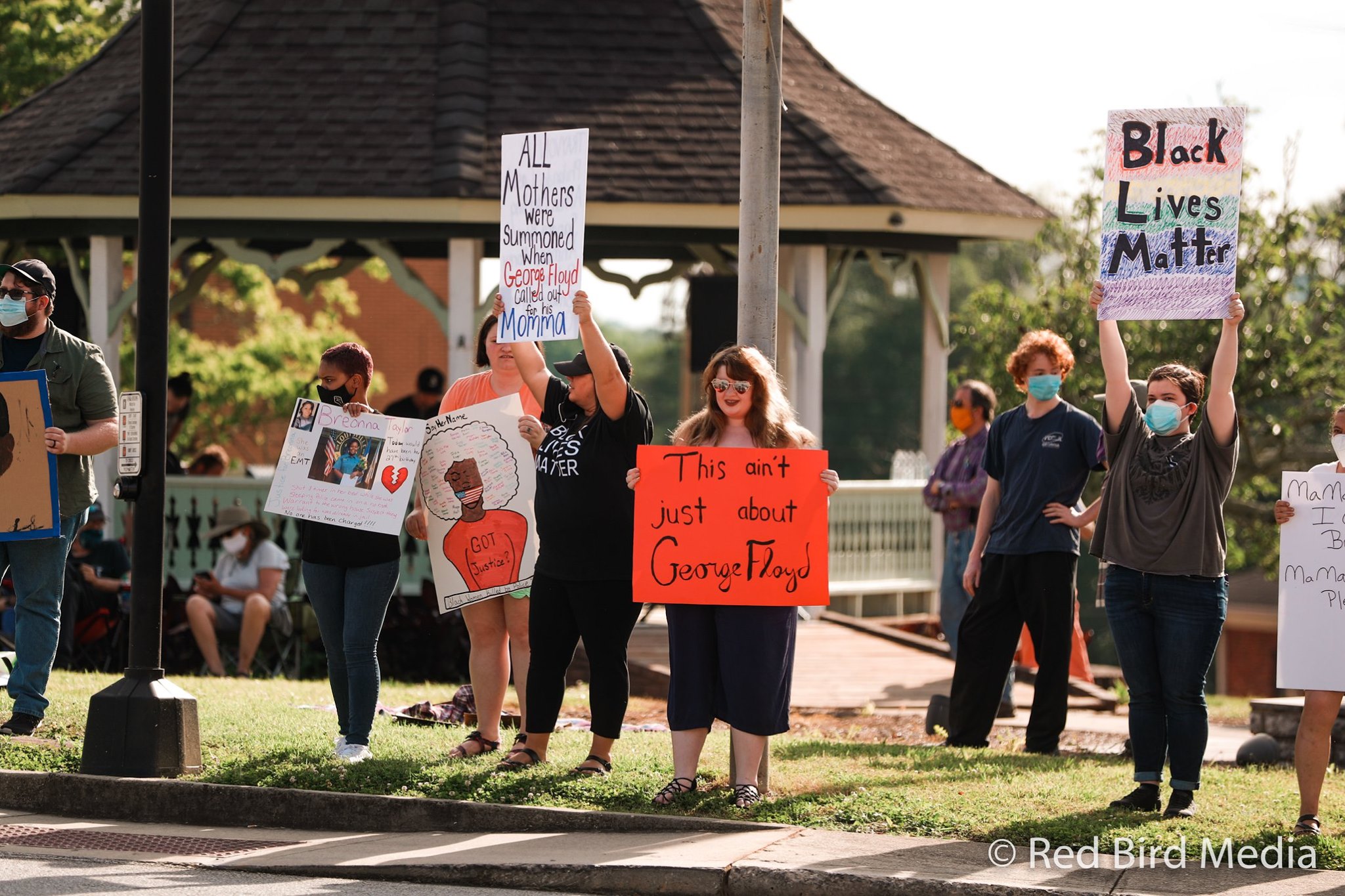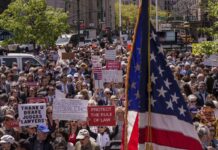
A bill aimed at curtailing violent protesters is poised for a return engagement at the Gold Dome early next year when lawmakers convene for their 2022 legislative session.
In a committee hearing Tuesday, Democrats and civil rights groups said the measure could chill free speech.
The bill’s author, Republican Sen. Randy Robertson of Cataula, said the measure will protect the right to peaceful protest and punish only those who break the law by engaging in violence, destroying property or blocking roads.
“When this legislation was first brought forward last year, and as the author of this legislation, I take full responsibility for that, there was some miscommunication as to what the intent of the legislation was,” Robertson said. “And what the intent of this legislation is is fairly simple. It is to protect peaceful and lawful assembly. What it is to push back against is unlawful assembly, violent assembly and situations where citizens who may want to come out and exercise their rights are not intimidated or pushed back or infiltrated by individuals who are there to disrupt their right to peacefully assemble.”
Under the proposed law, protesters who break the law would face increased penalties. Participating in a protest with seven or more people and committing violence against a person or property or blocking a highway during a protest could both land Georgians with a felony charge and a fine of between $1,000 and $5,000 or up to five years imprisonment. Defiling a publicly owned monument, cemetery or structure comes with even steeper punishments – a fine of up to $15,000 or up to 15 years behind bars.
It would also require cities and counties to establish a process for granting permits for all protests on public property, regardless of size, and governments that fail to provide “reasonable law enforcement protections” for protests that become violent could be made to pay damages for injuries or property damage.
Robertson gave the example of last summer’s violent racial justice protests and the Jan. 6 U.S. Capitol riot as the type of events the bill is intended to target. The Georgia Capitol has added increased security measures including a perimeter fence after protests over police brutality rocked Atlanta last year.
The bill also offers a legal shield for those who cause injury or death while fleeing such a protest if they do so “under the reasonable belief that fleeing was necessary to prevent or terminate an attack upon the accused’s property or person.”
Sen. Elena Parent, an Atlanta Democrat, questioned whether that last part would allow motorists to simply run protesters over.
“It seems like it’s like a license or escape hatch for individuals who would kind of run people over with their cars,” she said. “It just seems to really kind of almost, if not encourage, give license to that type of behavior.”
Robertson said his intent was to provide that defense only in desperate situations.
“I would attribute it to almost the castle doctrine, where an individual is securely in their vehicle and there’s a threat by someone, to impede their free movement to the point where that individual felt unduly threatened and prevented from leaving, someone may be trapped in their vehicle in these situations.”
Robertson gave the example of Los Angeles truck driver Reginald Denny, who was pulled from his truck and severely beaten by four men in the riots that followed the acquittals in the Rodney King trial in 1992.
Vasu Abhiraman, deputy political director and senior policy counsel for the American Civil Liberties Union, said the law already protects people who cause injury in self-defense and outlined several other problems the ACLU has with the legislation.
Among them, Abhiraman said the bill would provide local officials an incentive to crack down on peaceful protests rather than risk them getting out of hand and risk liability.
“The incentives go further than, for example, avoiding gross negligence,” he said. “They go towards avoiding any lawsuit established for that cause of action, and as municipalities have certain budgets for defending themselves against a suit like this, as they establish their standard operating procedure, we’re very concerned that that standard operating procedure will be anti-First Amendment, anti-peaceful assembly.”
As the Senators discussed the measure, deliberations were underway in the trial of Kyle Rittenhouse, who shot three men, killing two of them, during a protest in Kenosha, Wisconsin. Rittenhouse argued he fired in self defense.
If this bill becomes law, more people could be inspired to take justice into their own hands, potentially escalating dangerous situations, Abhiraman said.
“Unfortunately, there’s a case going on now involving somebody who thought they were volunteering to protect businesses, and it ended really, really poorly, and we can all see that,” he said. “Do we want to invite more actions like that into our communities in Georgia, the cradle of the Civil Rights Movement?”
Robertson’s bill did not receive a vote and will not advance during the current special session, but the Legislature is likely to revive it when they return in January.







